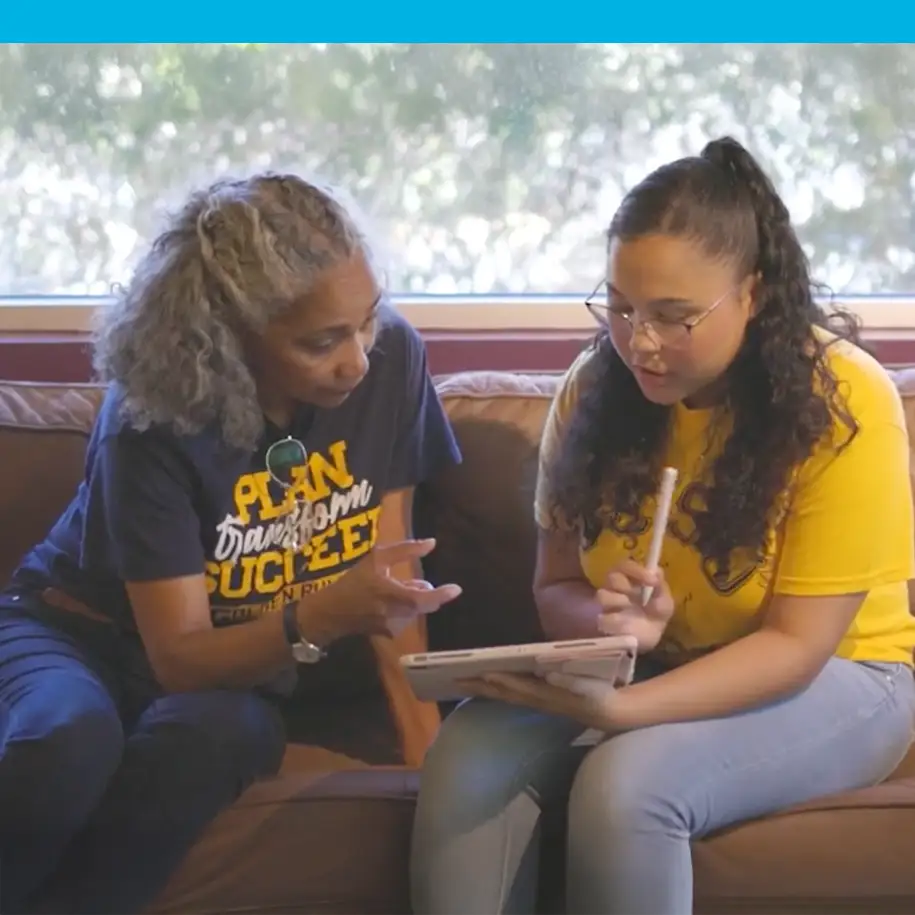
Firsthand stories from our coaches highlight the importance of an equity-first approach
Checking biases helps pave the way for learner success
While the work we do at InsideTrack revolves around education, many of the topics that come up in the course of our work pertain to non-academic life challenges or situations. This is why an important part of the training our coaches receive before ever working with a student involves instruction about how to respond to the non-academic situations that arise around the numerous barriers to education. Everyone has some kind of implicit bias. Rather than pretend to be “unbiased,” we work to recognize, understand and check our biases when we’re coaching.
Our student success coaches are trained not to judge, not to react emotionally, and not to act like they understand what a student is going through. Instead, they know to use our coaching methodology to talk through a student’s experience, learn more about the particulars of that experience, and then direct them to the resources that will ultimately help them work through the barrier and succeed. In this blog, three InsideTrack coaches share their stories about relying on their training and using an equity-first approach to inform their response to a non-academic student situation that arose during a coaching session. They explain how they used this approach to take a step back and think about their own assumptions, then respond through a coach's lens to react in a way that is most beneficial for the student. Here’s what each took away from their experience.
Coach Greig's takeaway: Providing grace and understanding to better the conversation
InsideTrack coach Greig’s work with the students in Foster Club, a national nonprofit network that empowers and supports foster youth, taught him a lesson about setting aside preconceived notions and allowing for grace. Foster Club partnered with InsideTrack to help Oregon foster youth navigate the complexity of high school graduation and chart a path to success in college or a career.
One specific coaching experience led him to reconsider one of his reactions to a situation and, as a result, change his thinking. As Greig tells it, the learner seemed to be warming up and the conversation was flowing. But that’s when the learner started talking to someone else. A few minutes later, it happened again. Greig found himself getting increasingly frustrated. Until the student apologized and told Greig that he had recently started his own business and was handling multiple contractor jobs requiring materials — and thus the interruptions. “
Clearly, what I originally felt as rude was just a young person maximizing his resources and his availability to improve his quality of life.” Because of this, having an interruption-free session with Greig was next to impossible. Having a better understanding of the learner’s situation, Greig suggested that they change their meeting cadence to more easily accommodate the student’s demanding workload.
Coach Micah's takeaway: Meeting students where they're at — in the way they want to be reached
Meeting students “on their turf” instead of requiring them to meet us on ours often has a huge impact on the success of our coaches’ interactions with their students. To this effect, InsideTrack coach Micah’s story revolves around a first-year college student who was the daughter of undocumented immigrants. It took Micah a while to earn her trust as, in her experience, authority figures had not always been allies — a feeling exacerbated by the tumultuous political environment of the previous administration. Over the phone, Micah recalls, the student was “perfectly polite but not terribly forthcoming.”
This all changed when Micah moved their interactions from phone calls to texting, hoping this mode of communication might help the student feel more comfortable. Her hesitancy vanished and she was able to open up to Micah, which enabled her to finally talk about what was really going on: her sense of isolation during her pivotal first year of college and subsequent desire to drop out. Texting gave her easy access to a safe space to share her feelings with someone who was able to make her feel heard, understood, and supported. And it gave Micah the ability to give her the support she deserved on her education pathway.
Coach Colleen's takeaway: Keeping the focus on the the student and the solution
A student’s comment in passing turned a regular coaching session into one that InsideTrack coach Colleen will never forget. Attending a community college in the Midwest, Colleen’s student was a young man who identified as African American. Their session was focused on addressing his financial issues, which the student worried would impact his ability to stay in school. Toward the end of the session, he mentioned, almost as an aside, “You know, one other thing. As a Black man, I have to tell you that I’m afraid to drive at night. I’m so afraid that I’ll get pulled over and killed.”
Colleen immediately felt emotional, but she didn’t want her reaction to interfere with her student being heard. Remembering her coach training helped guide her next moves. She told him that she needed to take a second to catch her breath because of the emotions she was feeling. She also emphasized that she wanted him to remain the focus of their conversation. This use of transparency kept him informed, explained her momentary silence, and gave him power and ownership in the conversation. It was also important for him to hear that she – a person with a different identity from his – was moved by what he said, yet for that reaction not to become the focus. From there Colleen was able to offer support and recommend some mental health resources specific for African American men.
Committing to equity
Alongside InsideTrack’s company-wide commitment to diversity, equity and inclusion, InsideTrack coaches understand the importance of taking an equity-first approach in their coaching. This means ongoing learning, listening and growing so that they can provide the most appropriate support for each of their students. Having clarity in their identities helps InsideTrack coaches stay focused on the solution rather than on whatever reaction they might be having. And sharing their stories about real coaching interactions helps ensure that their teachable moments become lessons learned for all of us.
Looking for tips to strengthen your student support through an equity lens?
Coaching solutions proven to advance all learners
Whether you’re looking to help students persist through completion or to improve career outcomes for job seekers and employees, our holistic coaching solutions can help you achieve meaningful outcomes.



